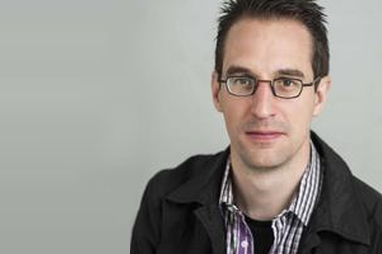Mentoring visit lecture – Dr Stefan Knippenberg (Hasselt University, Belgium)

27 03 2023
Category: Events, I.1.1/IV.1.1
We are pleased to announce the upcoming open lecture “Photophysics in Biomembranes”, prepared within the framework of the mentoring visit of Action I.1.1/IV.1.1 “Mentoring Programme”.
At the invitation of the Chemical and Biological Systems Simulation Lab of the Centre of New Technologies (CeNT UW) of the University of Warsaw, the lecture will be given by Dr. Stefan Knippenberg, from Hasselt University (Belgium).
The open lecture will take place on Friday, the 31th of March, 2023, at 13:00-14:00 in room 01.130, located on the second floor of the Center of New Technologies building at ul. Banacha 2C.
The flux of biomolecules, cell integrity or interactions with many enzymes is governed by biomembranes in living cells. Biomembranes are semi-permeable borders between environments of different properties. A critical parameter is the membrane fluidity, since it determines the motion rate of molecules within the membrane itself. Changes in the fluidity are directly related to the health of the cell. As an example, cancer cells can be characterized by a depletion of cholesterol, a reduction of the fluidity, and an increase in order. The accurate detection of the phase fluidity and lipid composition is therefore of paramount importance for a biomedicine perspective.
Thereupon, in recent years increased attention has been paid to the use of computational power and molecular modeling to tackle complex problems in biological environments. Computation can assess a priori novel probes’ optical properties and guide the analysis and interpretation of experimental data in novel studies. This lecture will focus on the computational simulation of optical experiments and light-sensitive molecular probes embedded in model membranes.
Stefan Knippenberg received his PhD back in 2007 in the Quantum Chemistry group at Hasselt University, Belgium. As a post-doc, he received ample funding from the Humboldt foundation in Germany, from the European Marie Curie programme and from the FNRS, which is the French speaking branch of the Belgian science foundation. In this period of time, Stefan worked in Frankfurt (Germany), in Mons (Belgium), in Heidelberg (Germany) and in Liège (Belgium), while he established contacts with scientific groups in France, United States, South-Korea and The Netherlands through long term stays. In 2014, he got his assistant professorship at the KTH Royal Institute of Technology and established a small group with a couple of post-docs and research students. At this moment, Dr. Knippenberg is back in Belgium and focuses among others at his Alma Mater in Hasselt on the behavior and properties of photosensitive probes which are embedded in a biological environment.
All interested under-graduate and graduate students as well as employees of the University of Warsaw are cordially welcomed to the lecture.